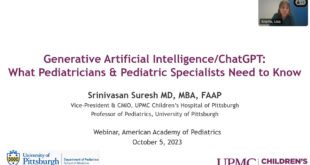My inbox is full of messages from experts who cold email me asking to be a source for any stories I’m working on. So, at first, the one from Sophie Cress, which invited me to interview her for a future article, seemed typical. “I’ve got over 8 years of experience and qualifications in Psychology and Couples & Family Therapy, and I’m enthusiastic about exploring potential collaborations, especially in the areas of love, relationships, or LGBTQIA+ topics,” Cress wrote. She included a list of links to articles she’d been featured in as an expert. But her email address, which used the domain name SexualAlpha.com, a website that reviews sex toys, gave me pause.
Over on Cress’s therapy website, she was described as a licensed marriage and family therapist in North Carolina, with a master’s degree in couples and family therapy from Antioch University. The site also listed two other certifications—Prepare/Enrich and Gottman Therapist—that many other marriage and family therapists have but not many average people are familiar with.
Yet, for me, a freelance reporter who often writes about mental health and has two decades of therapy under my belt, the tone seemed different from some other therapists’ websites. The biography on the site begins: “Hello beloved, how wonderful to have you here!” In the most prominent headshot photo on the site, a woman strikes a superhero pose, looking up and away from the camera, a sly smile playing on her lips.
I’d come to this website trying to learn more about Cress’s credentials and instead came away with more questions.
Ever since generative AI programs like ChatGPT burst into the public’s consciousness in late 2022, many of our digital experiences have gained a fresh sheen of mistrust. Is it really good advice to put a little glue into your pizza sauce to stop the cheese from sliding off? Is Billy Corgan actually promoting the new Smashing Pumpkins album in eight different languages? Is it really your mother calling to tell you she’s being held captive and if you don’t pay a ransom her kidnappers will kill her?
For journalists, already professionally obligated to be skeptical, that mistrust has to extend to potential sources. Of course, anyone could always claim to be anyone—with all due respect to prostitutes, grifter might actually be the world’s oldest profession. But AI programs make it so incredibly, terrifyingly easy to generate a chunk of text that seems, at least at first skim, like it was written by an expert in any field you can think of.
At the same time, the phone call has started to go the way of the answering machine (remember when we used to…). In our personal lives, texts are faster; in our professional ones, email is how many of us do much of our communicating with the outside world. And when you’re a reporter juggling multiple assignments, an email interview can be tempting. It’s often quicker and more convenient for both the journalist and their source than scheduling a phone call. A site that some reporters (including this one) have used to facilitate these types of interviews is Help a Reporter Out (HARO), which connects journalists with self-identified experts who are able to comment quickly, often over email. The first time I heard from Cress, she emailed me directly, noting that she “saw [my] website” which links to my writing portfolio. The second time, however, she was responding to one of my HARO requests for a story I was writing for another outlet.
(During the time I was reporting this story, HARO became Connectively, a platform owned by the PR-focused software company Cision. In December of last year, Cision shut down Connectively, a decision a spokesperson says was made so the company could focus on CisionOne, their platform that offers media monitoring as well as “journalist outreach tools” for marketing and PR professionals. Unless otherwise indicated, all of the company’s responses to my requests for comment happened before Connectively shut down.)
I responded to Cress’s email pitch, letting her know I’d be interested in interviewing her for an article about how to find a legitimate mental health expert online. She replied a few days later and agreed to the interview, but told me she could only conduct it via email, even after I requested a phone or video meeting. “I’m afraid I can’t commit to chat by phone or Zoom as of the moment as I’m constantly on the move so my best option would be through emails for now,” she explained. Once I said I really, truly could only do the interview over Zoom or a phone call, she stopped responding.
One issue with email interviews, of course, is that it leaves open the possibility that the sender isn’t the one writing the responses. The rise of generative AI chatbots also leaves open the possibility that a reply isn’t even coming from the mind of a human. At least one writer posting on Reddit lamented that some of the responses they’d received from Connectively-sourced experts seemed to be written by AI. Of course, just as a poorly written paragraph doesn’t necessarily mean it was crafted by a robot, the use of AI doesn’t inherently mean a source isn’t accurately representing their credentials; there have been reports of people across areas of expertise integrating generative AI tools into their workday. There have also been plenty of reports of people using AI to spread misinformation, revenge porn, and really bad art. As is often the case with emerging technology, we haven’t quite figured out if the pros outweigh the cons.
 Info Malang Raya Its All About World News
Info Malang Raya Its All About World News




